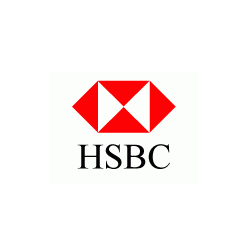
Financial giant HSBC has agreed to pay $30 million to settle a class action lawsuit alleging that the bank had deliberately indexed debit transactions from the highest to the lowest dollar amount to maximize overdraft fees.
The HSBC class action lawsuit also claimed that when the customers’ accounts became insufficient, they would be charged $35 per overdraft fee.
The allegations in the class action lawsuit are similar to claims other banks and credit unions are facing, with many customers asking if overdraft fees are legal?
HSBC is one of the largest banking and financial institutions in the world, serving over 47 million customers through four global business specialties: retail banking and wealth management, commercial banking, global banking and markets, and global private banking.
According to the HSBC website, the bank’s goal is to help its customers grow their money by connecting customers with opportunities, helping businesses thrive, to help sustain economies, and to ultimately help consumers reach their goals and ambitions. However the large bank was hit with massive overdraft fee class action lawsuit, filed by customers demanding compensation.
The customers who are part of the overdraft class action alleged HSBC had intentionally indexed their transactions in an order that maximized overdraft fees.
New York Supreme Court Judge Eileen Branstan had granted initial certification for the proposed class, and also gave her preliminary approval for the proposed settlement.
Are Overdraft Fees Illegal?
The issue of exorbitant overdraft fees has become a prominent concern to consumers in recent years, as banks and credit unions have allegedly been trying to capitalize on them.
Banks and credit unions reportedly began raising overdraft fees due to fewer customers overdrawing their accounts, and contending with pressure from a fluctuating economy. This has led to many customers asking “are overdraft fees legal,” as well asking about the policies surrounding them.
While overdraft fees are not illegal by themselves, it is unlawful for financial institutions to charge overdraft fees to customers unless if they have opted for overdraft protection.
The Consumer Finance Protection Bureau has started writing policies that will prohibit financial institutions from indexing purchase transactions from highest to lowest as described in the HSBC overdraft fee class action lawsuit. The Bureau is also considering capping the amount in overdraft fees financial institutions can charge, as well as how frequently the charges are imposed.
The Bureau is expecting the new rules to be finalized sometime early 2016. In the meantime, HSBC denies any wrongdoing regarding their overdraft fees transaction process but agreed to the settlement to avoid further litigation.
The HSBC class action settlement applies to all HSBC customers in the United States who experienced large overdraft fees in their accounts due to how their transactions were indexed. The class period is from Dec. 17, 2004 and June 30, 2010 for consumer accounts, while business accounts are from Dec. 17, 2004 and Nov. 30, 2011.
The HSBC Overdraft Fees Class Action Lawsuit is In re: HSBC Bank USA NA Checking Account Overdraft Litigation, Case No. 650562/2011, in the Supreme Court of the State of New York, County of New York.
Do YOU have a legal claim? Fill out the form on this page now for a free, immediate, and confidential case evaluation. Some of the banks and credit unions being investigated include, but are not limited to:
Bank of Oklahoma
Commerce Bank
HSBC
Valley National Bank
New York Community Bank
Community Bank, N.A.
Citizens Bank
Stillwater Bank
Tri Counties Bank
Banco Popular
The attorneys who work with Top Class Actions will contact you if you qualify to let you know if an individual lawsuit or class action lawsuit is best for you. Hurry — statutes of limitations may apply.
ATTORNEY ADVERTISING
Top Class Actions is a Proud Member of the American Bar Association
LEGAL INFORMATION IS NOT LEGAL ADVICE
Top Class Actions Legal Statement
©2008 – 2025 Top Class Actions® LLC
Various Trademarks held by their respective owners
This website is not intended for viewing or usage by European Union citizens.
Get Help – It’s Free
Join a Free Bank & Credit Union Overdraft Fee Class Action Lawsuit Investigation
If your bank and credit union charged you overdraft fees, you may have a legal claim. Fill out the form on this page now to find out if you qualify!
An attorney will contact you if you qualify to discuss the details of your potential case.
ATTORNEY ADVERTISING
The choice of a lawyer is an important decision and should not be based solely on advertisements.
E-mail any problems with this form to [email protected]
PAID ATTORNEY ADVERTISEMENT: THIS WEB PAGE IS AN ADVERTISEMENT AND THE PARTICIPATING ATTORNEY(S) ARE INCLUDED BECAUSE THEY PAY AN ADVERTISING FEE. The attorney in charge of this advertisement is T.Kick. It is not a lawyer referral service or prepaid legal services plan. Top Class Actions is not a law firm. Top Class Actions does not endorse or recommend any lawyer or law firm who participates in the network, nor does it analyze a person’s legal situation when determining which participating lawyers receive a person’s inquiry. It does not make any representation and has not made any judgment as to the qualifications, expertise or credentials of any participating lawyer. No representation is made that the quality of the legal services to be performed is greater than the quality of legal services performed by other lawyers. The information contained herein is not legal advice. Any information you submit to Top Class Actions does not create an attorney-client relationship and may not be protected by attorney-client privilege. Do not use the form to submit confidential, time-sensitive, or privileged information. All photos are of models and do not depict clients. All case evaluations are performed by participating attorneys.












